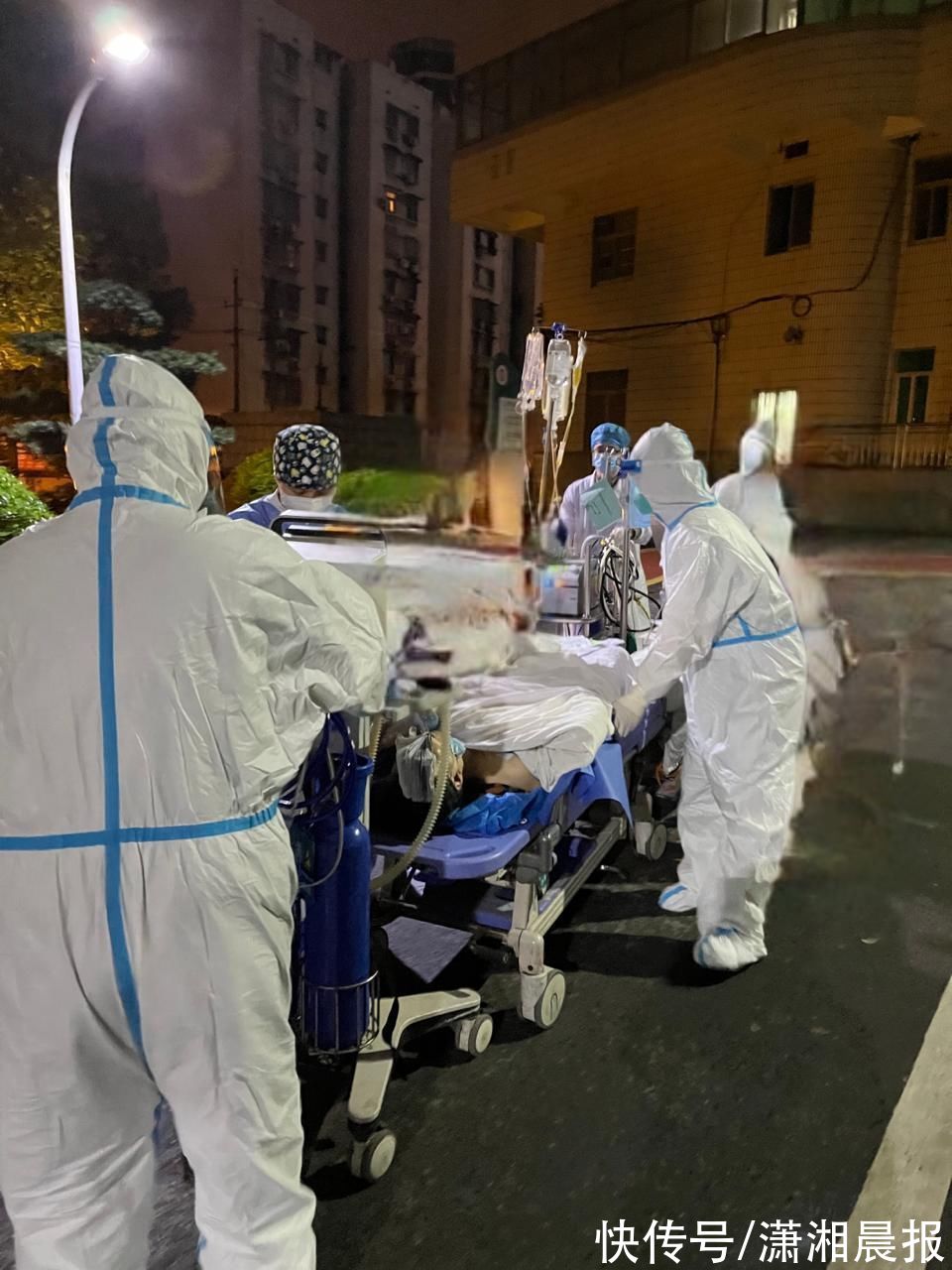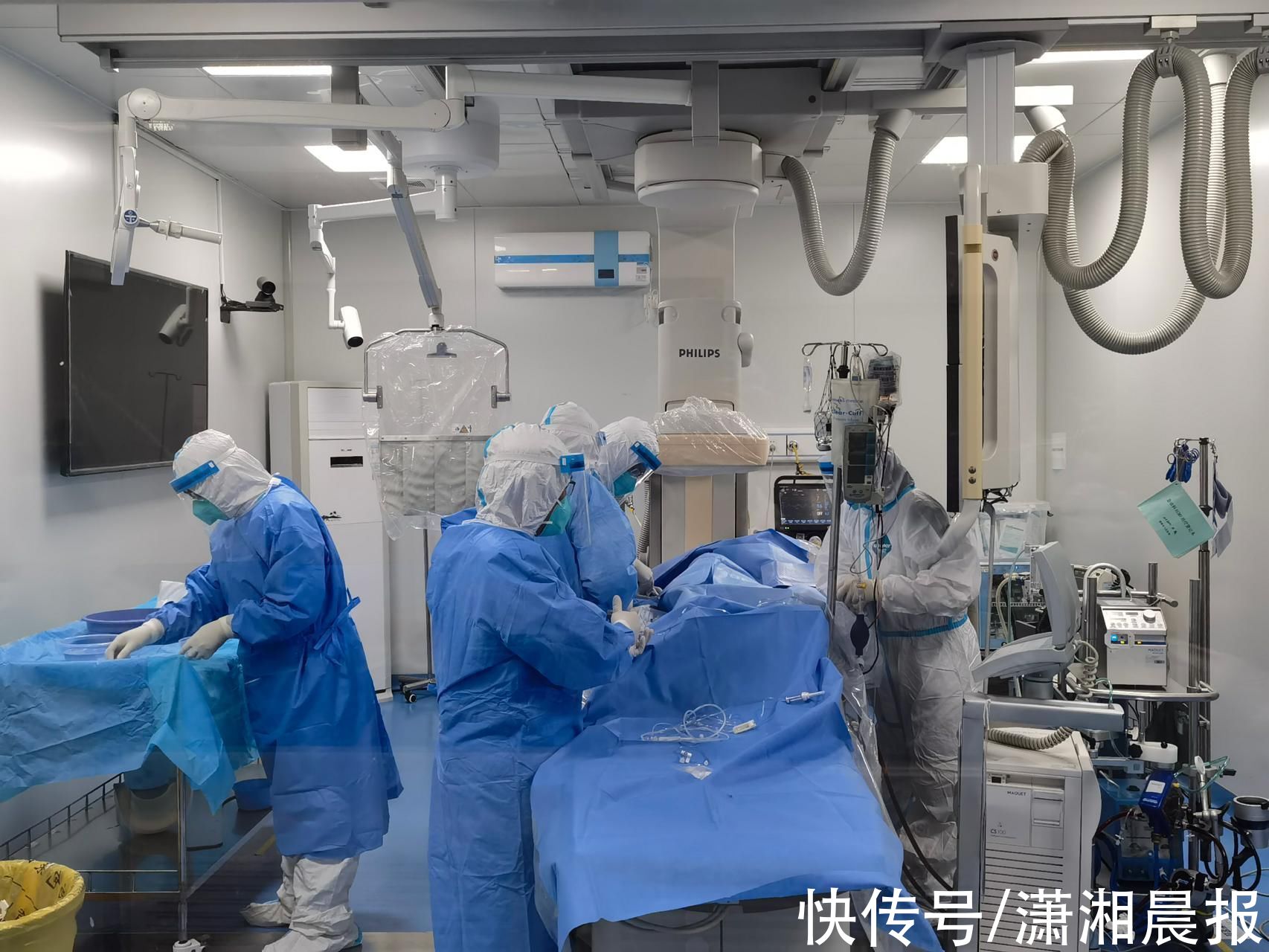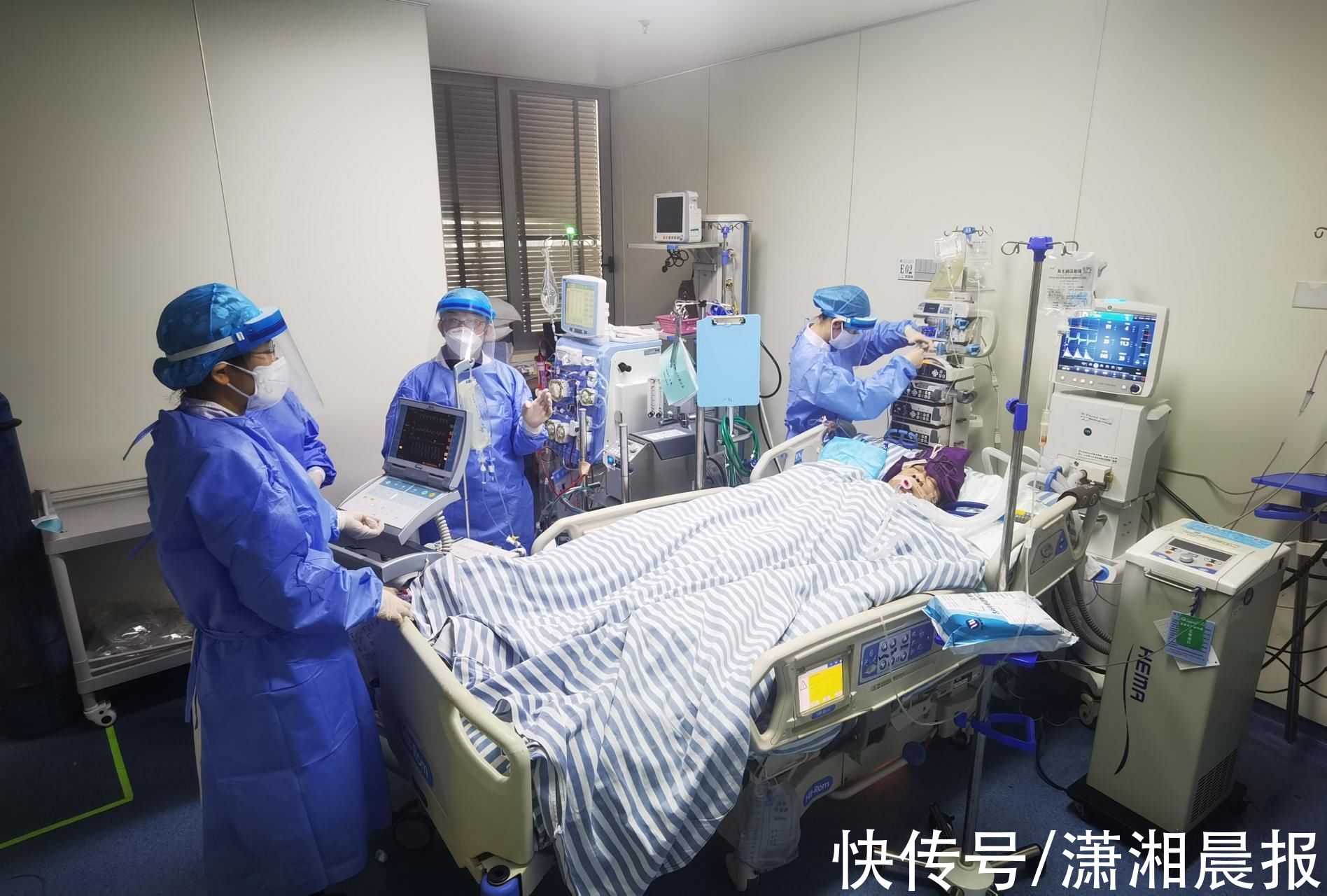At about 9 pm on March 31, with the sound of the ambulance whistle, Mr. Zhang (pseudonym), 59, from the Changsha New Crown Epidemic Control Area, was rescued by negative pressure due to “sudden chest pain and chest tightness for 1 hour” The car was escorted to the emergency department of Hunan Provincial People’s Hospital.

The attending physician Zhou Wei briefly asked the patient’s medical history and quickly performed an electrocardiogram for the patient; the nurse also checked the patient’s itinerary code, health code and new crown Pneumonia nucleic acid test results. Unsurprisingly, the electrocardiogram showed “acute myocardial infarction”.
At this moment, the patient’s condition suddenly worsened, with loss of consciousness, cardiac arrest, and continuous drop in blood pressure. Considering “acute myocardial infarction, cardiogenic shock”, he immediately called for emergency consultation in the Department of Cardiovascular Medicine. Han Xiaotong, director of the Department of Emergency Medicine, reported. Director Han Xiaotong instructed to immediately start extracorporeal cardiopulmonary resuscitation (ECMO assistance at the same time as cardiopulmonary resuscitation), and instructed the specific treatment process.

Soon, the emergency ECMO team members attending physician Wang Luping, attending physician Tan Zheng, physician Xu Yixiao, nurse Luo Jun, nurse Tang Yu, Nurse Pan Yu quickly assembled and started extracorporeal membrane oxygenation (ECMO) therapy for the patient under ultrasound guidance. From tube placement, priming, connection to operation, the entire process took less than 20 minutes. With the operation of ECMO, the patient’s vital signs were maintained, which bought precious time for the follow-up treatment.
Meanwhile, it was decided to perform emergency coronary intervention (PCI) after consultation with the Cardiology Department. After communicating with the family about the condition, the patient was urgently transferred to the Interventional Hybrid Surgery Department. Deputy Chief Physician Zhang Yu performed coronary angiography and found that the right coronary artery was completely occluded and the heart was not contracting at all. Immediately, stent placement + aortic balloon counterpulsation (IABP) + transvenous pacemaker system implantation were given.
It was 3:00 am on April 1st when the operation ended, and the patient was transferred to the EICU negative pressure ward for further treatment. At this time, he had anuria again, and blood gas analysis showed severe acidosis, high potassium, and high sodium, so ECMO combined with continuous renal replacement therapy (CRRT) was urgently implemented.

After a series of rescues, the patient’s condition is still very critical, with multiple catheters such as ECMO, CRRT, IABP and temporary pacemaker and trachea in the body. Intubation is connected to a ventilator to assist breathing, which increases the difficulty of anticoagulation, and may be complicated by thrombosis, bleeding, disseminated intravascular coagulation (DIC), and serious infection at any time. Life-threatening. Experts such as Han Xiaotong, director of the emergency medicine department, and Fan Maiying, director of the first emergency department, clearly required during the ward rounds that the staff in each class must closely monitor and evaluate the condition 24 hours a day, and dynamically adjust the treatment plan in real time.
“The patient is from the epidemic control area. From the moment he enters the hospital, we strictly implement the ‘standard secondary prevention’ regulations for epidemic prevention and control. Whether ECMO operation or interventional operation is a refined operation, complete Armed medical staff need to overcome difficulties such as profuse sweating under protective clothing, difficulty breathing under protective masks, and obstructed vision under protective goggles, and do every link accurately.” Director Han Xiaotong pointed out that the treatment of this patient is important for the treatment of multidisciplinary teams. Ability, nursing level and hospital infection prevention and control all put forward extremely high requirements.
“Treatment of patients should always be put first!” Tan Lihong, director of Hunan Provincial People’s Hospital, pointed out that despite the severe and complicated situation of epidemic prevention and control, the hospital has always insisted on strict prevention and control of the epidemic. To ensure that the daily diagnosis and treatment work is carried out in an orderly and efficient manner. All departments of the hospital, including the department of emergency medicine, are fully prepared to admit and treat critically ill patients in the closed and controlled areas at any time.
Xiaoxiang Morning News reporter Xia Sheng correspondent Liang Huitian Jingjing Ning Fengling
News clue breaking news channel: Download the “Morning Video” client from the app market and enter the “Morning Help” topic; or Call the morning video news hotline 0731-85571188.